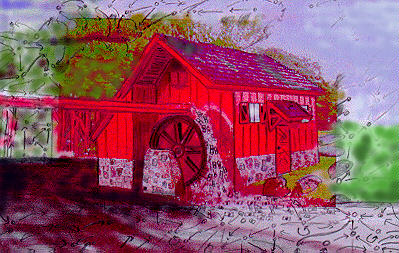“I’m not asking how much money was stolen. Nor am I asking how much money we think might be stolen before this is over.
“I’m asking about the potential for harm to an international banking system we now know has security flaws at several levels. I’m sure our friends from the ABA will excuse me if I stipulate that the operations personnel at some banks have been somewhat blaz\acutee about certain aspects of security. I very much doubt that Bendix is unique. But putting that aside, far more importantly, we now know that the key management protocol has design flaws. We have seen the impact of these flaws. Have we seen the full impact?”
At this point Weld placed a viewgraph on the projector. The title of the slide read simply, “Scope.” The slide itself had only one sentence on it. Actually, it was only a sentence fragment, and it read, “flaws evaluated in the context of geopolitical threat models.”
Upon placing this slide on the screen Weld said, “my question is this: is anybody considering the possibility of a terrorist attack on the US banking infra-structure? I know that the FBI profile for the millwright and the recent money mill operations indicate a single person working for personal gain, but forget that for a moment. Concentrate instead on the larger problem. We have weaknesses in technical design, in bureaucratic procedures, in inter-department communications, and in banking procedures. So I ask again: what is the potential cost?”
Weld paused and slowly gazed around the room. He stood with both arms outstretched before him, hands resting on either side of the lecturn, leaning slightly forward. His eyes went from one person to the next, making eye contact with anybody that returned his gaze. Weld had not changed the viewgraph slide since putting up that initial slide asking about the threat potential. He had no need for slides; everybody had their eyes fixed on him. After surveying his entire audience Weld took a sip of water from the glass in front of him.
“Here’s a hypothetical situation,” he said. He had everybody riveted to their chairs and he knew it. I had been hoping for a chance to see why Weld was becoming somewhat of a celebrity and I was not disappointed.
“Suppose the actual attack hasn’t even started yet. Suppose all we have seen so far are a few practice runs. Furthermore, suppose our `attacker’ is merely the computer programmer that engineered the attack on behalf of a larger group. What group? Oh let’s say… the Iraqi government. Or even an extremist group within the United States such as the Patriots. The FBI has already told us that the group behind the attacks is probably opposed to our government.
“`But wait,’ you say. `All evidence we have indicates that the millwright is operating for personal gain.’ True. But perhaps that personal gain is payment for a job well done in cracking the American banking network. Maybe all we’ve seen so far is the initial payment for a different attack. An initial payment and a test-run rolled into one. The real attack doesn’t have to be a whole lot different from what we’ve already seen. It might be the same thing, only on a larger scale. Say… ten thousand times the scale. And why not? Surely it is a small matter of programming to step up the frequency of the bogus EFT’s. The attackers wouldn’t even have to increase the dollar amounts on individual EFT’s. After all, using unusually high amounts might draw attention to the illegitimate EFT’s. Remember, they probably don’t know we are on to them.”
I looked around the room to see how the others were reacting. Normally in a gathering like this there are two or three quiet conversations being carried out, either in whispered exchanges or on notes scribbled on a neighbor’s papers. Not so here. Weld had everybody hooked.
“Or maybe drawing attention to themselves is not a concern. Does the Iraqi government care if we know they are the culprits after they have succeeded in bringing the American banking system to its knees? Do they care if we trace the origin of the attack back to a computer in Baghdad after they have declared war on a nation where every bank account has been altered and the economy is in collapse?
“Repairing the damage won’t be easy. There will be secondary and tertiary affects. I would expect a public reaction that puts the 1929 crash and all previous bank runs to shame. It took American investors forty years to recover from the 1929 crash. Maybe some of the bankers in the room can estimate the overall economic impact of a temporary but massive loss of integrity in the entire international banking infra-structure. I can’t. But I have my suspicions. Thank you gentlemen.”
Weld strode off the podium, sat in his seat, crossed one leg over the other, and sat facing the front of the room with his hands resting in his lap. I think everybody was caught be surprise by his abrupt finish. But then, there really was no need to say anything more. And, by way of a summary, his sole viewgraph remained on the screen, asking that same question about seemingly small flaws becoming large when viewed in a different context. Weld’s scenario, while perhaps unlikely, was certainly plausible.
